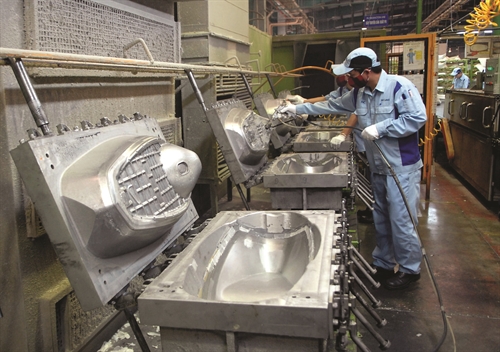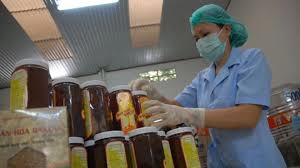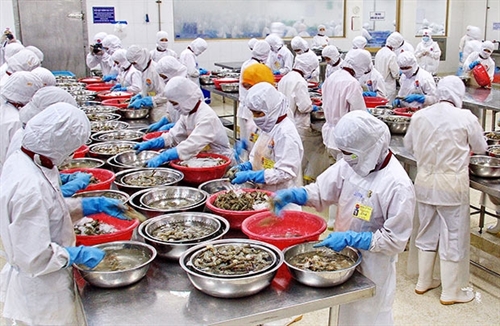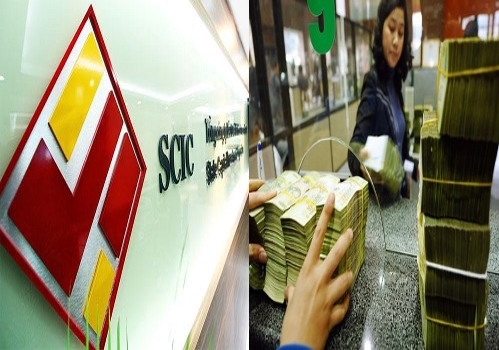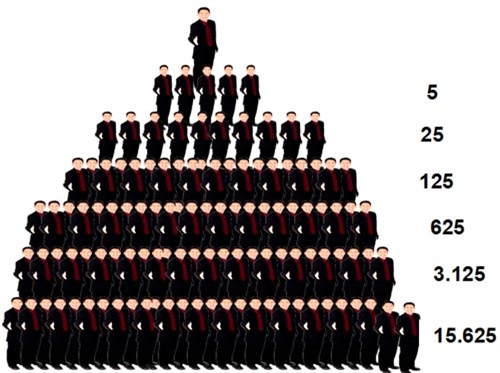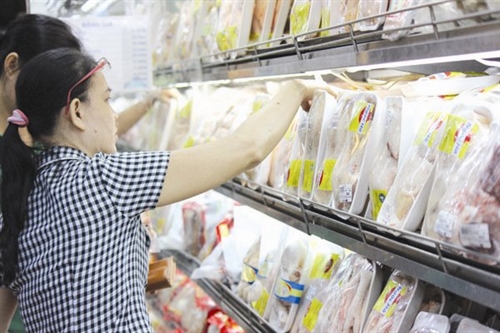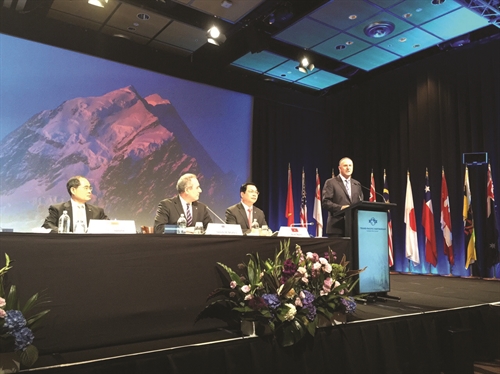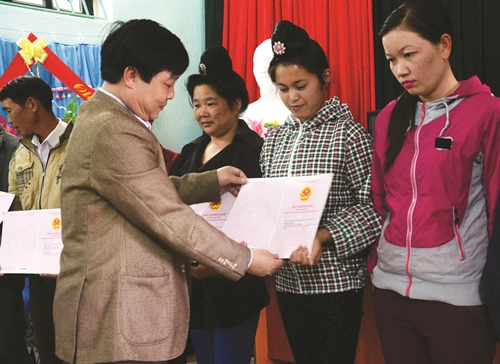Over the past 14 years, Vietnamese goods have been exposed to more than 100 trade remedy cases overseas while local authorities have enforced measures to tackle only six such cases in Vietnam, out of which four were successful.
This reality shows that Vietnamese businesses are facing an increasing number of investigations in foreign markets, but have not yet familiarized themselves with and effectively used trade remedies[i] to protect themselves at home.
The assessments were made at a conference held this month by the Vietnam Competition Authority (VCA) under the Ministry of Industry and Trade (MOIT) in collaboration with the Vietnam Chamber of Commerce and Industry (VCCI) to review the enforcement of Vietnam’s regulations on trade remedies and propose solutions for improving the situation.
Review of enforcement of regulations on trade remedies
Addressing the conference, VCA deputy director Nguyen Phuong Nam said Vietnam’s legal framework on trade remedies has been put in place to help re-establish order in competition between imported and local products.
Currently, Vietnam has three legal documents governing trade remedies, namely Ordinance on Safeguards dated June 11, 2002, Ordinance on Anti-dumping dated April 29, 2004, and Ordinance on Anti-subsidy dated August 20, 2004. Many decrees and circulars have been issued to detail these three ordinances, Nam said.
Despite the existence of such legal framework on trade remedies, only in 2009 did Vietnamese authorities launch the first safeguard probe into imported float glass. In the final conclusion on the case, investigators ruled that foreign products did not hurt local producers, so no safeguard was imposed.
The second safeguard case was initiated in 2012 against imported refined vegetable oil and succeeded with the imposition of a trade remedy duty.
In 2013, the VCA launched the first-ever anti-dumping case against stainless steel imported from China, Taiwan, Malaysia and Indonesia. After carrying out all necessary processes for 12 consecutive months, in September 2014, the MOIT issued its final conclusion on the dumping act of foreign manufacturers and exporters and decided to impose an anti-dumping duty.
In September 2015, the investigation agency received another petition for and conducted safeguard investigations against imported seasonings. In March 2016, the MOIT issued a decision to impose a trade remedy duty on this product.
Another safeguard case was launched in December 2015 against imported steel billets and long steel bars and its final ruling is expected to be issued by the end of June 2016.
In the latest case starting in March this year, the MOIT decided to carry out an anti-dumping probe into coated steel sheets imported from China and South Korea.
Over the past 14 years, the MOIT has not yet carried out any investigation into anti-subsidy cases.
Nguyen Thi Thu Trang, director of the VCCI’s WTO and Integration Center, said the number of trade remedy cases initiated by domestic businesses is small but tends to rise, pointing out that out of the six lawsuits filed since 2002, three were initiated during 2002-14, and three were in 2015 and 2016.
It is worrying that four out of the six lawsuits were related to safeguard, Trang said, noting that a country that wishes to apply this measure should make careful consideration as it might have to compensate for the country to which such measure is applied.
The other two measures, anti-dumping and anti-subsidy, are commonly applied in developed countries, but have not yet been applied appropriately in Vietnam. The reason is that to apply these measures, investigation agencies must be knowledgeable about prices as well as economic policies of the countries to which Vietnam intends to apply such measures, Trang said.
The increasing number of petitions filed by domestic manufacturers shows that the use of legal tools is necessary and appropriate to protect local products and businesses in the domestic market against acts of unfair competition of foreign businesses, Nam said, adding that these tools play a crucial role in protecting the country’s fledgling industries in the process of international integration.
The conference participants also agreed that trade remedies became extremely necessary in the context that foreign commodities overflow the domestic market as a result of tariff reductions while Vietnamese products are not competitive enough.
Talking about problems during the investigations for taking trade remedies, Pham Chau Giang, head of the VCA’s Division of Investigation for Trade Remedies, said Vietnam’s regulations on trade remedies remain inadequate.
The current ordinances on trade remedies were based on WTO agreements without taking into account the actual situation of the country, she said.
The second problem is the capacity of state management agencies and awareness of businesses about trade remedies, Giang said.
According to a survey conducted in 2015 by the VCCI, 15 percent of the 1,000 surveyed businesses did not know about trade remedies, over 63 percent knew but did not understand and nearly 20 percent understood a little about these actions. Less than 2 percent of the respondents had a thorough understanding about trade remedies, while 41 percent of them said that they could not fully satisfy the conditions for initiating trade remedy cases.
Solutions proposed
According to Giang, the Government is now taking various supportive measures, such as giving priority to supporting industries and increasing high-quality workforce for other industries. However, it takes time for these measures to bring about real results while the tax reduction roadmap is faster.
Trade remedies should only be considered “antibiotics” which must be taken with appropriate dosages, Giang said, adding that in a longer term, local businesses should focus on improving their competitiveness.
Nam said that to increase the number of trade remedy cases, local businesses should enhance their knowledge about trade remedies, prepare themselves to use these tools, and send their petitions to responsible state management agencies for investigation.
He suggested local businesses unite with one another via commodity associations so as to facilitate the application of trade remedies.
Trang said businesses should take the initiative in updating information about unfair competition risks and possible lawsuits that may affect their interests. Commodity associations should increase provision of information and counseling for businesses to help them reduce costs, and enhance connectivity and guidance for their actions.
Not only the Ministry of Industry and Trade but also the Ministry of Finance, General Department of Customs, local Industry and Trade Departments and relevant agencies should improve their knowledge about trade remedies, Giang said.
Nam said that in many developed countries, there is a body responsible for initiating lawsuits and a body in charge of countering lawsuits, which operate independently. Meanwhile, the VCA has to perform both these tasks. The compilation of documents for initiating an anti-dumping or anti-subsidy lawsuit is a very hard task, requiring much time and great effort. He proposed easing workload for the VCA so that it can concentrate on trade remedies.
Trang also suggested revising regulations on disclosure of information to expand the scope of information accessible to businesses and provide specialized information for them. She proposed improving the mechanisms to support pre-proceeding and proceeding activities such as providing counseling on making petitions, supporting access to information under the management of state agencies, and supporting field investigations and verification of information of plaintiffs.
Pham Tat Thang, former director of the MOIT’s Information Center, said Vietnam should prepare legal grounds and necessary resources for application of the three trade remedies. He proposed revising the current legal framework on trade remedies to conform with the new laws on investment, enterprises, import duty and export duty, and customs.
According to the VCA, the MOIT is working on a law on foreign trade management. Expected to take effect in January 2018, the law will replace the three current ordinances on trade remedies.-
This reality shows that Vietnamese businesses are facing an increasing number of investigations in foreign markets, but have not yet familiarized themselves with and effectively used trade remedies[i] to protect themselves at home.
The assessments were made at a conference held this month by the Vietnam Competition Authority (VCA) under the Ministry of Industry and Trade (MOIT) in collaboration with the Vietnam Chamber of Commerce and Industry (VCCI) to review the enforcement of Vietnam’s regulations on trade remedies and propose solutions for improving the situation.
Review of enforcement of regulations on trade remedies
Addressing the conference, VCA deputy director Nguyen Phuong Nam said Vietnam’s legal framework on trade remedies has been put in place to help re-establish order in competition between imported and local products.
Currently, Vietnam has three legal documents governing trade remedies, namely Ordinance on Safeguards dated June 11, 2002, Ordinance on Anti-dumping dated April 29, 2004, and Ordinance on Anti-subsidy dated August 20, 2004. Many decrees and circulars have been issued to detail these three ordinances, Nam said.
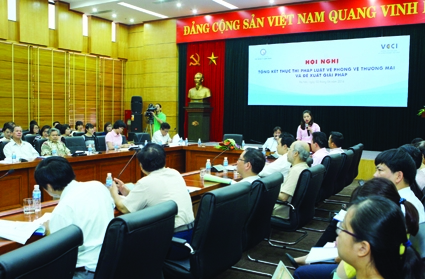 |
| Conference reviewing the enforcement of regulations on trade remedies jointly held by VCCI and Vietnam Competition Authority under MOIT __Photo: Tuan Anh/VNA |
Despite the existence of such legal framework on trade remedies, only in 2009 did Vietnamese authorities launch the first safeguard probe into imported float glass. In the final conclusion on the case, investigators ruled that foreign products did not hurt local producers, so no safeguard was imposed.
The second safeguard case was initiated in 2012 against imported refined vegetable oil and succeeded with the imposition of a trade remedy duty.
In 2013, the VCA launched the first-ever anti-dumping case against stainless steel imported from China, Taiwan, Malaysia and Indonesia. After carrying out all necessary processes for 12 consecutive months, in September 2014, the MOIT issued its final conclusion on the dumping act of foreign manufacturers and exporters and decided to impose an anti-dumping duty.
In September 2015, the investigation agency received another petition for and conducted safeguard investigations against imported seasonings. In March 2016, the MOIT issued a decision to impose a trade remedy duty on this product.
Another safeguard case was launched in December 2015 against imported steel billets and long steel bars and its final ruling is expected to be issued by the end of June 2016.
In the latest case starting in March this year, the MOIT decided to carry out an anti-dumping probe into coated steel sheets imported from China and South Korea.
Over the past 14 years, the MOIT has not yet carried out any investigation into anti-subsidy cases.
Nguyen Thi Thu Trang, director of the VCCI’s WTO and Integration Center, said the number of trade remedy cases initiated by domestic businesses is small but tends to rise, pointing out that out of the six lawsuits filed since 2002, three were initiated during 2002-14, and three were in 2015 and 2016.
It is worrying that four out of the six lawsuits were related to safeguard, Trang said, noting that a country that wishes to apply this measure should make careful consideration as it might have to compensate for the country to which such measure is applied.
The other two measures, anti-dumping and anti-subsidy, are commonly applied in developed countries, but have not yet been applied appropriately in Vietnam. The reason is that to apply these measures, investigation agencies must be knowledgeable about prices as well as economic policies of the countries to which Vietnam intends to apply such measures, Trang said.
The increasing number of petitions filed by domestic manufacturers shows that the use of legal tools is necessary and appropriate to protect local products and businesses in the domestic market against acts of unfair competition of foreign businesses, Nam said, adding that these tools play a crucial role in protecting the country’s fledgling industries in the process of international integration.
The conference participants also agreed that trade remedies became extremely necessary in the context that foreign commodities overflow the domestic market as a result of tariff reductions while Vietnamese products are not competitive enough.
Talking about problems during the investigations for taking trade remedies, Pham Chau Giang, head of the VCA’s Division of Investigation for Trade Remedies, said Vietnam’s regulations on trade remedies remain inadequate.
The current ordinances on trade remedies were based on WTO agreements without taking into account the actual situation of the country, she said.
The second problem is the capacity of state management agencies and awareness of businesses about trade remedies, Giang said.
According to a survey conducted in 2015 by the VCCI, 15 percent of the 1,000 surveyed businesses did not know about trade remedies, over 63 percent knew but did not understand and nearly 20 percent understood a little about these actions. Less than 2 percent of the respondents had a thorough understanding about trade remedies, while 41 percent of them said that they could not fully satisfy the conditions for initiating trade remedy cases.
Solutions proposed
According to Giang, the Government is now taking various supportive measures, such as giving priority to supporting industries and increasing high-quality workforce for other industries. However, it takes time for these measures to bring about real results while the tax reduction roadmap is faster.
Trade remedies should only be considered “antibiotics” which must be taken with appropriate dosages, Giang said, adding that in a longer term, local businesses should focus on improving their competitiveness.
Nam said that to increase the number of trade remedy cases, local businesses should enhance their knowledge about trade remedies, prepare themselves to use these tools, and send their petitions to responsible state management agencies for investigation.
He suggested local businesses unite with one another via commodity associations so as to facilitate the application of trade remedies.
Trang said businesses should take the initiative in updating information about unfair competition risks and possible lawsuits that may affect their interests. Commodity associations should increase provision of information and counseling for businesses to help them reduce costs, and enhance connectivity and guidance for their actions.
Not only the Ministry of Industry and Trade but also the Ministry of Finance, General Department of Customs, local Industry and Trade Departments and relevant agencies should improve their knowledge about trade remedies, Giang said.
Nam said that in many developed countries, there is a body responsible for initiating lawsuits and a body in charge of countering lawsuits, which operate independently. Meanwhile, the VCA has to perform both these tasks. The compilation of documents for initiating an anti-dumping or anti-subsidy lawsuit is a very hard task, requiring much time and great effort. He proposed easing workload for the VCA so that it can concentrate on trade remedies.
Trang also suggested revising regulations on disclosure of information to expand the scope of information accessible to businesses and provide specialized information for them. She proposed improving the mechanisms to support pre-proceeding and proceeding activities such as providing counseling on making petitions, supporting access to information under the management of state agencies, and supporting field investigations and verification of information of plaintiffs.
Pham Tat Thang, former director of the MOIT’s Information Center, said Vietnam should prepare legal grounds and necessary resources for application of the three trade remedies. He proposed revising the current legal framework on trade remedies to conform with the new laws on investment, enterprises, import duty and export duty, and customs.
According to the VCA, the MOIT is working on a law on foreign trade management. Expected to take effect in January 2018, the law will replace the three current ordinances on trade remedies.-
[i] There are three trade remedies currently applicable in the world, including the anti-dumping measure (applied to unfair commercial practices); the anti-subsidy measure (applied for removing the negative impacts resulting from subsidy policies of the governments of exporting countries); and the safeguard measure (an urgent tool for immediately redressing damage caused by abnormal increase of imported goods).


